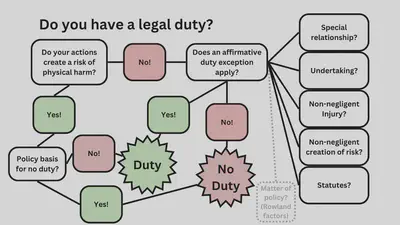theme: Colin autoscale: true slidenumbers: true header: #373737, alignment(left), line-height(150%), text-scale(1.0), ITC Galliard Pro Bold Footer:
Duty to Third Parties
&
Policy Bases for No Duty
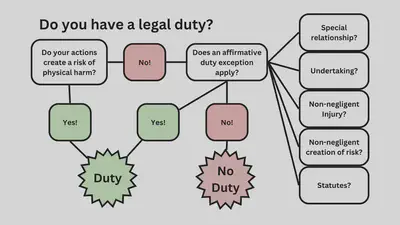
[fit] Tarasoff v. Regents of the University of California
“The Psychiatrist Who Didn’t Warn the Murder Victim”
[fit] Randi W. v. Muroc Joint Unified School District
“The Alleged Sexual Predator’s Recommenders”
Rowland Factors
- foreseeability of harm
- certainty of plaintiff’s injury
- connection between defendant’s conduct and plaintiff’s injury
- moral blame
- policy of preventing harm
- burden to defendant
- consequences to community
- availability of insurance
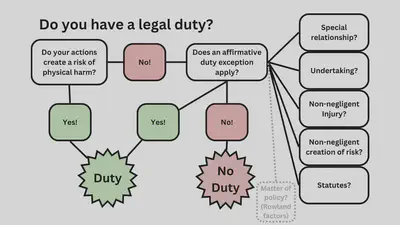
Policy Bases for No Duty
Strauss v. Belle Realty
Third Restatement
When determining that no legal duty exists for reasons of public policy, courts should use “categorical, bright-line rules of law applicable to a general class of cases.”
Reynolds v. Hicks
Negligence Per Se
Remember Martin v. Herzog?
Negligence Per Se
Under RCW 66.44.270(1) it is a crime to:
give or otherwise supply liquor to any person under the age of twenty-one years or permit any person under that age to consume liquor on his or her premises or on any premises under his or her control.
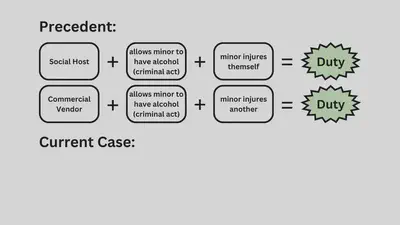
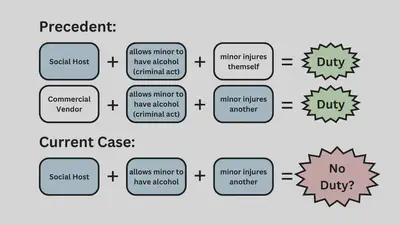
[fit] What the heck?
Two Reasons
- Legal
- Policy
